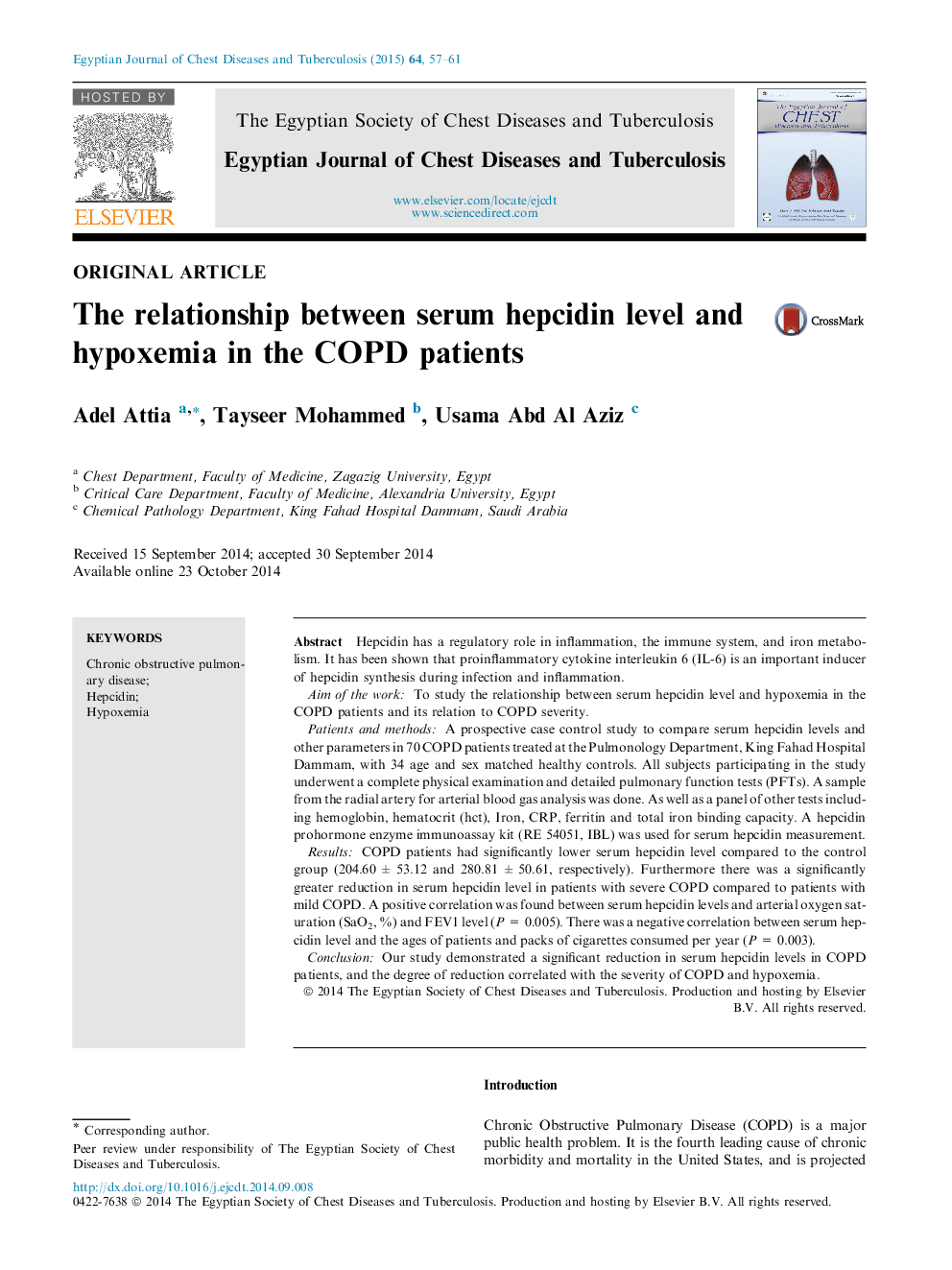| Article ID | Journal | Published Year | Pages | File Type |
|---|---|---|---|---|
| 3400085 | Egyptian Journal of Chest Diseases and Tuberculosis | 2015 | 5 Pages |
Hepcidin has a regulatory role in inflammation, the immune system, and iron metabolism. It has been shown that proinflammatory cytokine interleukin 6 (IL-6) is an important inducer of hepcidin synthesis during infection and inflammation.Aim of the workTo study the relationship between serum hepcidin level and hypoxemia in the COPD patients and its relation to COPD severity.Patients and methodsA prospective case control study to compare serum hepcidin levels and other parameters in 70 COPD patients treated at the Pulmonology Department, King Fahad Hospital Dammam, with 34 age and sex matched healthy controls. All subjects participating in the study underwent a complete physical examination and detailed pulmonary function tests (PFTs). A sample from the radial artery for arterial blood gas analysis was done. As well as a panel of other tests including hemoglobin, hematocrit (hct), Iron, CRP, ferritin and total iron binding capacity. A hepcidin prohormone enzyme immunoassay kit (RE 54051, IBL) was used for serum hepcidin measurement.ResultsCOPD patients had significantly lower serum hepcidin level compared to the control group (204.60 ± 53.12 and 280.81 ± 50.61, respectively). Furthermore there was a significantly greater reduction in serum hepcidin level in patients with severe COPD compared to patients with mild COPD. A positive correlation was found between serum hepcidin levels and arterial oxygen saturation (SaO2, %) and FEV1 level (P = 0.005). There was a negative correlation between serum hepcidin level and the ages of patients and packs of cigarettes consumed per year (P = 0.003).ConclusionOur study demonstrated a significant reduction in serum hepcidin levels in COPD patients, and the degree of reduction correlated with the severity of COPD and hypoxemia.
